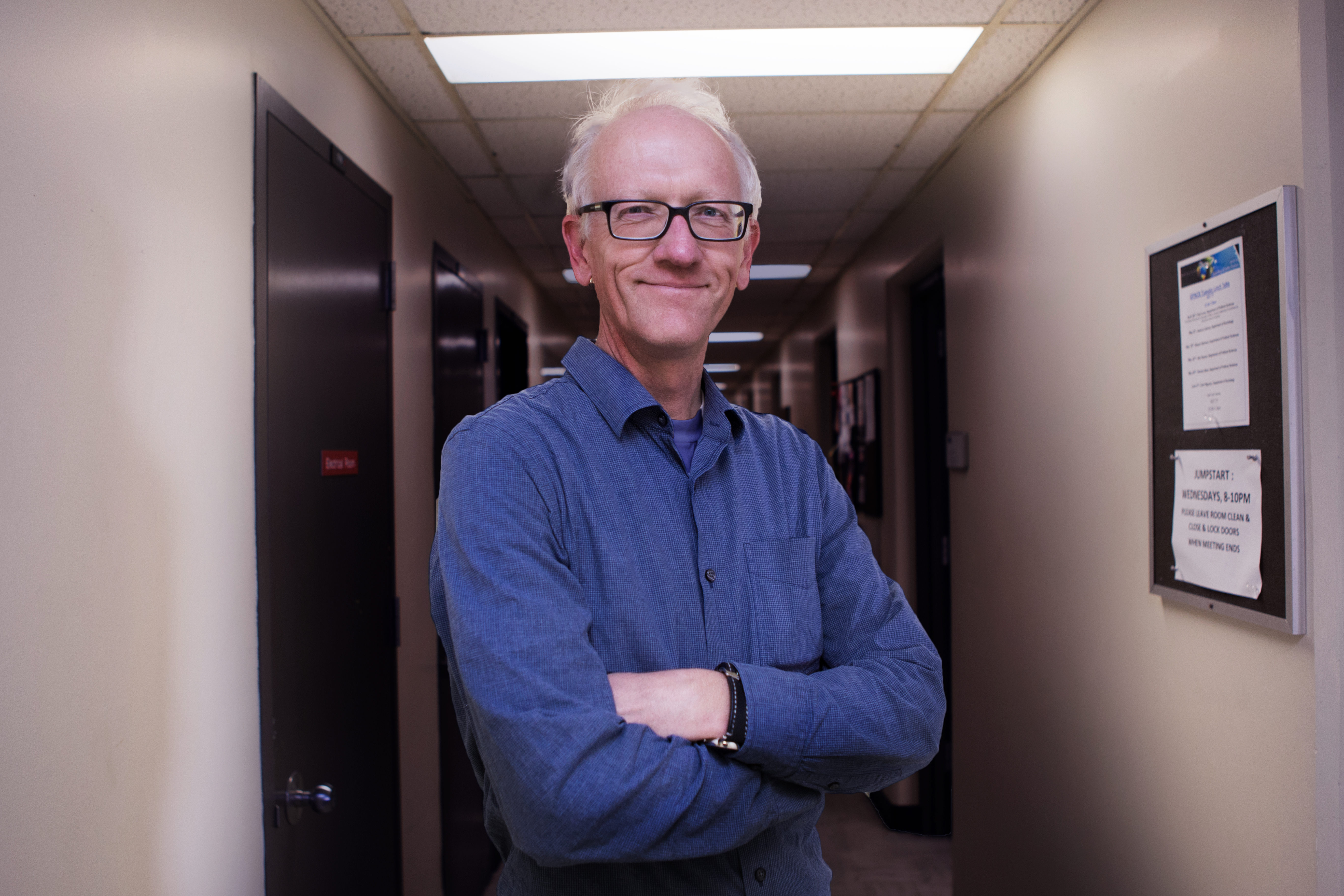"For physics, this is a bit like finding the Dead Sea scrolls. Nobody expected to find this stuff and now here it is."
 Jeffrey Barrett, UCI Chancellor’s Professor of Logic and Philosophy of Science, received a phone call in 2007 from Peter Byrne, a Northern California investigative journalist working on a biography for Scientific American on Hugh Everett III – American physicist who first proposed the many-worlds interpretation of quantum physics. Peter, who was writing the biography in the 50-year anniversary of Everett’s world formulation of quantum mechanics, contacted Barrett to look over manuscripts uncovered from Everett’s home by his son Mark Everett and Mark’s mother. These documents detailed more of Hugh Everett’s formulation of quantum mechanics, and as Barrett put it as he recalled the memory, “it was pure gold”! Not long after the discovery, Barrett worked with UCI Libraries’ Special Collections and Archives to digitize the manuscripts for scholarly use.
Jeffrey Barrett, UCI Chancellor’s Professor of Logic and Philosophy of Science, received a phone call in 2007 from Peter Byrne, a Northern California investigative journalist working on a biography for Scientific American on Hugh Everett III – American physicist who first proposed the many-worlds interpretation of quantum physics. Peter, who was writing the biography in the 50-year anniversary of Everett’s world formulation of quantum mechanics, contacted Barrett to look over manuscripts uncovered from Everett’s home by his son Mark Everett and Mark’s mother. These documents detailed more of Hugh Everett’s formulation of quantum mechanics, and as Barrett put it as he recalled the memory, “it was pure gold”! Not long after the discovery, Barrett worked with UCI Libraries’ Special Collections and Archives to digitize the manuscripts for scholarly use.
The Libraries recently interviewed Professor Jeffrey Barrett about this unexpected find. In it, he shares the story of uncovering Everett’s manuscripts, and how UCI Libraries helped him impact scholarly research in physics at UCI and beyond. His story unfolds below:
Charla Batey: So maybe you could just start with a general overview to understand what this is.
Jeffrey Barrett: In quantum mechanics, there is something called the quantum measurement problem. Hugh Everett III, an American physicist, came up with a proposal for solving the quantum measurement problem while a graduate student at Princeton University in the 1950’s. He is the one who first proposed the many-worlds interpretation of the quantum measurement problem. The basic idea is that whenever we observe the world, there's a sense in which the universe splits into one copy of the universe where one observes one thing, and another copy where one sees something else. At the time, most people ignored him, but then his proposal got this life of its own, and over time his “many-worlds” theory gained popularity.
During an interview in 2007 for Scientific American, Hugh Everett’s son, Mark Everett, mentioned that when his father died, he and his mother dumped all of his belongings found on his desk into boxes. Coincidentally, the boxes resided in the basement of Mark’s house. In the boxes, the interviewer, investigative journalist Peter Byrne, found boxes full of notes and papers. Some of the papers were written by people criticizing Hugh Everett’s proposal. Written in the margins were Everett’s responses – providing more detail about his formulation of quantum mechanics. For physics, this is a bit like finding the Dead Sea scrolls. Nobody expected to find this stuff and now here it is. It tells us things we never thought we would know.
The UCI Libraries, with special credit to the team in Special Collections & Archives, was extraordinarily helpful in digitizing these manuscripts. We also used money awarded from the National Science Foundation (NSF) to hire graduate students to help write the metadata associated with the documents. Now, this resource of global importance is available online and preserved at UCI.
Charla: So how long did it take to do all the digitization?
Jeffrey: To do all the metadata and scanning; it took about six months.
Charla: And when was it completed?
Jeffrey: We wrapped most of it up in 2012. It has been an online resource since then.
Charla: And are you regularly using it with students?
Jeffrey: All the time. I tell my students the story about how these manuscripts were found. Many of them then use the archive for term papers and other projects. In some cases, they may be reading something that only a few people have ever read. My colleagues also find the archive invaluable. I am routinely contacted by people in fields ranging from physics to film for permission to use material from it.
Charla: So do you think that there is something special about the University of California for digitizing this?
Jeffrey: The University of California is grounded on principles of open access to education and educational resources. Running against these principles is a long tradition in academics of a kind of protectiveness. If you're the person who has documents like these and others do not, you get to work on them and your students get to work on them. The lack of being able to share research material easily has provided an excuse to not share information in the past. In digitizing the Everett archive, the UCI Libraries has provided an enormous commitment of resources. Making this material openly available has had a significant impact on our understanding of the history of modern physics.
